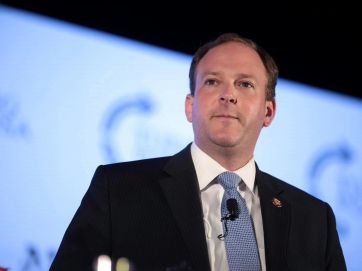For more than a decade, economic growth in the American economy has slowed and is in danger of stagnation. One reason for that worsening performance is that our education system no longer supplies enough of America’s best and brightest individuals with the enhanced human capital necessary to propel the private sector economy. Businesses, their associations, and independent commissions have repeatedly identified their inability to fill positions requiring both high school and college graduates with higher-level skills. (See my articles Competency, Growth, and Jobs) Their repeated cries for corrective action have not yielded an adequate response.
American capitalism works by investors funding entrepreneurs who employ higher-skilled workers and executives to develop new products. Their success in turn spurs business expansion and necessitates hiring more workers with similar and lesser skills. This is how private sector jobs are created, which generate individual income and economic growth. Without a sufficient supply of high-skill workers, the process slows or does not proceed; jobs, income, economic growth, and tax revenue stagnate—and move overseas. Ominously, new domestic job creation from entrepreneurial startup corporations has fallen by 2 million (about half) since 2000.
From about 1870, public and college (community and four-year) education gave American workers the skills needed to take advantage of technological developments. This brought about the world’s most productive economy and richest nation. Ironically, more than half a century ago, leading American thinkers, such as Peter Drucker and Daniel Bell, began forecasting the rise of a new knowledge age, a postindustrial service society, a more competitive global economy, and the information revolution. They anticipated a need not just for college-educated cognitive elites, but also for high-skilled secondary school graduates who could advance in the middle class, reducing inequality.
But since around 1980, American educational institutions have not provided enough workers with the higher skills needed to keep pace with technological advance, according to Harvard economists Claudia Goldin and Lawrence F. Katz in The Race Between Education and Technology (2008). For the first time in American history, workers retiring from the labor force are better educated than the ones who are to replace them.
How did this come to be, and why has improvement been so elusive? The short answer is that progressivism and postmodern multiculturalism continue to dominate education and focus on group grievance, group entitlement, and “social justice,” as I argued in Marxist Justice. They seek to achieve equality through the social construction of the individual and knowledge, as I explained in Human Nature. That pathology permeates our educational culture at all levels and must be extirpated if our economy is to thrive.
In the early twentieth century, John Dewey introduced the concept of progressive education, which gradually pervaded public schools. Dewey “taught that the school, which heretofore had been the locus of intergenerational transmission of received scholarship, learning, and wisdom, needed to become an agent of social betterment and change.” He instilled two fundamental changes: “child-centered rather than content-centered education” and a role for schools in constructing “a new social order…which would eventually bring into being a democratic socialist society.” (Lerner, Nagai, and Rothman, Molding the Good Citizen, 1995)
In her universally acclaimed book Left Back: A Century of Failed School Reforms (2000), educational historian Diane Ravitch explains that during the 1930s,
the progressive leaders at Columbia Teachers College, including Dewey,…agreed that American society and the economy were being hampered by…self-seeking business entrepreneurs; that collectivism must replace individualism; that the profit motive was destructive; and that the economy should be planned and controlled by government agencies….The traditional academic curriculum reflected the failed capitalist economic order and...a radical change in the social order required equally sweeping changes in the schools….Dewey expressed the progressive consensus when he wrote that “education cannot be neutral and indifferent as to the kind of social organization which exists…education must operate in view of a deliberately preferred social order.”
“The progressive education movement…sprang back to life in the early 1960s,” adds Ravitch, “with anti-intellectualism at the forefront.” Radical critics rejected
virtually all manifestations of formal education: textbooks and tests, marks and grading, curricula and lesson plans, and knowledge itself.…The radical critique…blossomed into a dynamic movement founded on the proposition that the public school system was a vast machine of oppression, a tool of an unjust and corrupt society, and that new institutions would have to…create a new kind of person and thus a new kind of society.
These changes were devised by the academic education monopoly—colleges of education, their trained, indoctrinated, and unionized teacher-advocates and administrators, and associated methods, curricula, content, and textbooks. Whatever their subjects, public schoolteachers embrace the common mission of reconstructing America according to the egalitarian and multicultural norms mandated by their pedagogical training.
We have known for thirty years the devastating consequences of that ideological agenda—the substitution of social reform, multicultural trivia, and political correctness for knowledge. A Nation at Risk (1983) warned of “a rising tide of mediocrity that threatens our very future as a Nation and a people” and stated: “Our society and its educational institutions seem to have lost sight of the basic purposes of schooling, and of the high expectations and disciplined effort needed to attain them.”
In The War Against Excellence: The Rising Tide of Mediocrity in America’s Middle Schools (2003), Cheri Pierson Yecke describes how the educational establishment responded to A Nation at Risk:
Rather than strengthen their commitment to higher academic standards, activist reformers…soon made it clear that the middle school was not just a new educational organization, but a means to an end—that end being the implementation of massive changes meant to produce social egalitarianism. The middle school was to become the vehicle for implementing “social justice” by “making everyone equal.” The goal of producing mass equality is being pursued through policies and practices implemented in middle schools across the country. Ability grouping is discouraged as elitist and in many places has been replaced with “cooperative learning,” where a few students do all the work and everyone shares the grade. High ability students are often not allowed to work at their own pace but instead are…required to tutor others, resulting in a loss of their own educational growth…The entire middle school curriculum has been dumbed down.
All of these policies and practices have been working together in a systematic fashion, encouraging at many middle schools a culture of disdain and contempt for high academic achievement. This is nothing less than a declaration of war against academic excellence.
Middle schools have succeeded in the ideological agenda of making students equal—at the lowest common denominator of mediocrity—which many high schools are unable to overcome and sometimes worsen.
Is it any wonder then that our public schools are not turning out our best students with the sophistication needed to drive a high-technology economy? While charter schools have been able to rescue many individual children, they have not increased the flow of high-skill workers to the extent required. Innumerable government-sponsored training programs over decades have not proved effective, as manufacturing shortages illustrate. While many community colleges have worked with local employers, student outcomes have been poor, as I reported in Community Colleges. Human capital must be built up through a long process commencing at a young age.
I suggest that education reform needs to proceed in two new and fundamental ways—to provide a greater supply of high-skill workers, meeting requirements defined by business, who might bootstrap our capitalist economy, with benefits for all:
-
We should identify, mentor, and educate selected children with the intellectual potential from an early age, placing them on a separate track (ability grouping) to become high-skill workers in the private sector economy. This should not be a track only towards college; qualified high school graduates should be an equal aim.
- The track must begin in the primary grades and continue through secondary schooling, both to penetrate the blanket of equality under which our best are smothered and to inculcate knowledge upon which later education must build to develop human capital.
In a forthcoming series of articles, on knowledge workers, critical thinking, STEM, liberal education, and immaterial assets, I will further discuss why the above approach should be given consideration and what its more specific nature might be.
Other measures such as retraining to alleviate the economy’s skills deficit must obviously continue in the near term since the above actions would take years to reach fruition. But as French Marshall Lyautey said when his gardener told him a tree would not reach maturity for 100 years, then “there is no time to lose, plant it this afternoon.”
For many years, NAS has fought against the turn of education away from the standard of excellence venerated by Western civilization and towards the cultural relativism esteemed by postmodern multiculturalism in the name of equality and social justice. My effort continues in that tradition.
______________________________________________________________________________
This is one of a series of occasional articles applying the lessons of Western civilization to contemporary issues relevant to the academy.
The Honorable William H. Young was appointed by President George H. W. Bush to be Assistant Secretary for Nuclear Energy and served in that position from November 1989 to January 1993. He is the author of Ordering America: Fulfilling the Ideals of Western Civilization (2010) and Centering America: Resurrecting the Local Progressive Ideal (2002).













